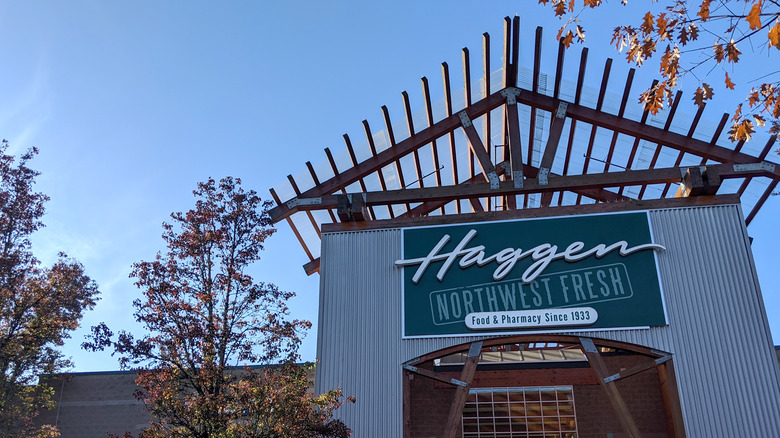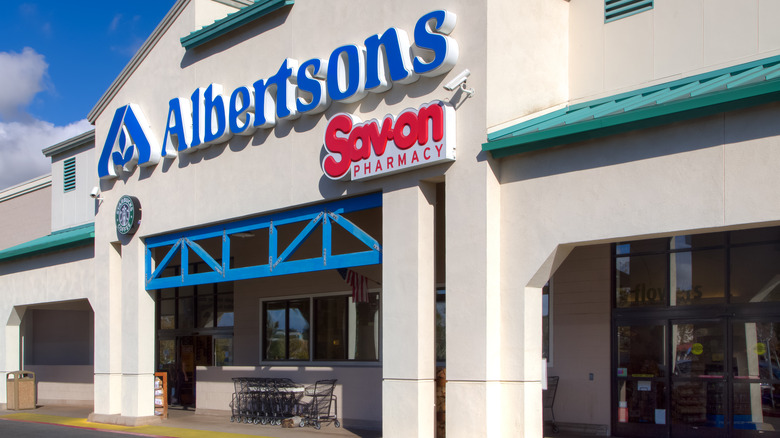Why Grocery Chain Haggen Once Sued Albertsons
Haggen, the Pacific Northwest-based grocery store chain now known as Haggen Northwest Fresh, once waged a David and Goliath battle with super-chain Albertsons.
In 2015, Albertsons approached Haggen with an offer to expand their brand from Washington and Oregon farther into California, Nevada, and Arizona by purchasing 146 stores that Albertsons was looking to sell off to accommodate its merger with Safeway (via The Seattle Times). The acquisition would expand Haggen from 18 stores, 16 pharmacies, and 2,000 employees into a much larger company with 164 stores and nearly 10,000 employees, according to the San Gabriel Valley Tribune. Haggen jumped at the chance and paid an estimated $1.4 billion for the remaining Safeways, Vons, Pavillions, Albertsons, and inventory that needed to be divested for the merger to be approved (via Los Angeles Times).
Allegedly, Albertsons also agreed to provide business processing software, which would compile data that Haggen needed for a smooth transition. In less than a year, the company rebranded the stores and waltzed into the Golden State. "We were looking for an acquisition and this once-in-a-lifetime opportunity came up as a result of the Albertsons/Safeway merger," Bill Shaner, Haggen's CEO for the Pacific Southwest said, per the San Gabriel Valley Tribune.
Haggen claims Albertsons sabotaged them
Six months later, Haggen filed for bankruptcy. Stores void of customers, consumers complaining of high prices, minimal advertising in a saturated LA market, and a $41.1 million lawsuit from Albertsons for unpaid inventory led the stores to close 27 of their new locations, according to the Orange County Register. Lay-offs of this magnitude prompted Assembly Bill 359, led by Assemblywoman Lorena Gonzales, which protects workers in large grocery stores (at least 15,000 square feet) from being let go during a 90-day transition period if a store is undergoing new ownership (via Daily News).
But the little chain fought back by suing Albertsons for $1 billion, an amount, explained their attorney, for triple damages plus fees. The lawsuit claimed that Albertsons gave Haggen muddled data, didn't provide the software they promised, understocked stores, and sabotaged their expansion with an ad campaign to work against them. Further, Haggen claimed that their high prices were a direct result of Albertsons giving them misleading price information. Albertsons said the claims were without merit. Another six months later, the Puget Sound Business Journal reported that a settlement had been reached. In this story, Goliath won. Haggen would walk away with a $5.75 million cash settlement out of the $1 billion lawsuit.

